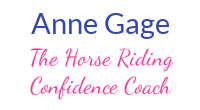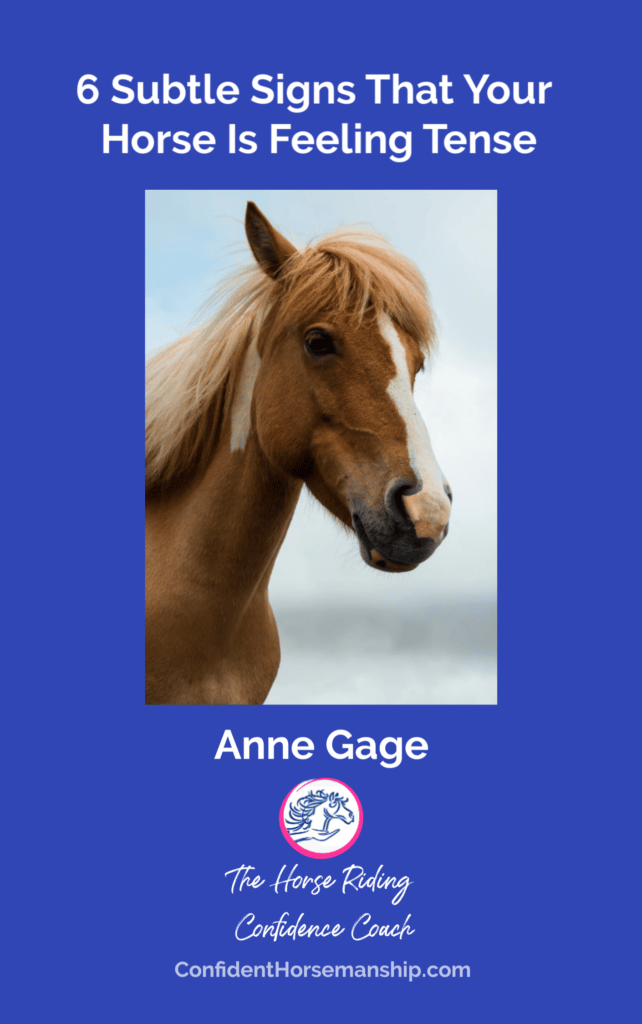Has your horse's sudden change in behaviour got you worried that he might hurt you? Is his behaviour unpredictable? Are you doubting your own ability to handle him from the ground or in the saddle?
You feel worried, concerned, and even fearful - and you don't know what to do because your horse's personality has changed so dramatically. And that's stopping you from enjoying being with your horse.
Read on for my 3 steps to help you find the possible cause of the your horse's behaviour change. And the best solution to help get your horse back to his old self.
Several years ago, I was caught off guard when my usually quiet, easy going gelding surprised me by becoming a bucking bronco! I hit the dirt ... hard!
My horse's sudden change in behaviour was completely out of character for his usually calm temperament. His new spookiness and reactivity were causing my horse to have unpredictable behaviours.
Even though I wasn't physically hurt (other than a bruised butt)... my confidence was completely shattered.
If you're dealing with a sudden change in your horse’s behaviour, it's time to do some detective work to find the root cause of the problem. Only when you know what the cause is can you apply the appropriate solution.
Following these 3 tips can help you find the cause and the best solution to your horse’s performance problem.
Tip #1 - Always check for a physical problem as the cause for your horse's behaviour change.
Horses can be sore without showing lameness or other noticeable signs. As prey animals, it’s natural for them as to hide any sign of weakness that could make them a more appealing target for predators.
So, it makes sense that horses are very good at hiding muscle soreness or chiropractic misalignment. Other areas that are often overlooked are dental problems, TMJ issues, and digestive disorders such as gastric ulcers.
Have an equine veterinarian and/or chiropractor give your horse a thorough physical check up to identify or eliminate any possible physical problems.
In my gelding's case, his sudden temperament change was caused by an underlying muscle disorder (PSSM) that we weren't aware of until after the bucking incident. My equine veterinarian diagnosed the problem and helped me set up a program to manage it.
Tip #2 Check saddle fit as a potential cause of for your horse's changed personality.
That saddle you bought when you first got your horse (or was it your previous horse's saddle?) may have fit him fine then.
But, horses' muscles change with age and exercise. Saddles also change with wear. The padding can pack or break down. Wrinkles can develop in the leather causing pressure points.
An ill-fitting saddle is one of the most common causes of sudden change in horses' behaviour.
Check the condition and fit of your saddle regularly - at least every 6 months. If you're not sure how to check saddle fit then get help from a qualified saddle fitter. It's well worth investing the money to prevent a problem for your horse (and you) down the road.
You can also check out these free saddle fitting videos from Schleese Saddlery.
Tip #3 Go Back to Basics with Your Horse to change your horse's unwanted behaviour
Behaviour problems can happen when a horse is moved along in his training more quickly than he is physically or mentally ready to handle.
Slow down and spend more time focusing on straightness, suppleness and balance to build the healthy, strong and long muscles your horse needs to do his job confidently, well, and without resistance.
Don't trot before you can walk really, really well. And don't canter before you can trot really well. Walk is the most under-rated gait in riding, but is the foundation of everything else.
Use hill work, poles, and lateral exercises to develop your horse's core, back and hindquarter muscles - gradually. There are no quick fixes for this. It takes time, consistency and doing the right exercises in the right way.
Work with a qualified horse trainer who does not offer quick fixes, but truly cares about the horse's mental and physical well being for the long term.
Bonus Tip - Go Back to Basics with Your Riding.
If your trust and confidence has been damaged then do yourself and your horse a huge favour. Focus on developing a truly independent seat in the saddle so that you are supple, soft and balanced.
The physical tension that comes with feeling nervous puts you (and therefore your horse) off balance.
It also makes your aids unclear and inconsistent. And that confuses your horse.
And, it creates the vicious cycle of your mental tension (nervousness, fear or anxiety) causing resistance and nervousness in your horse... which continues to damage your confidence and your partnership.
When you're balanced in the saddle, you feel more secure and therefore less nervous. Taking lunge lessons on a well-schooled horse with an experienced coach is a great way to improve your seat and position - regardless of how much riding experience you have.
The bottom line ...
Your horse’s behaviour is his communication. Listen anytime there is a sudden change in your horse's temperament or behaviour. And really investigate to find the root cause of the problem.
Horse's really don't behave in certain ways just to "get the better of" you or even to become the leader (that's an out-dated understanding of horses). So when behaviour changes and/or becomes unpredictable... your horse is clearly telling you there is a problem that needs your attention.
Figure out what the cause is first - confusion, fear or pain. And then you can work on the most beneficial solution to get you both enjoying every ride.
Help Your Horse Feel Calm and Confident
Download my free (and printable) infographic explaining 6 subtle signs that your horse feels tense. The sooner you recognize that your horse feels nervous, the more quickly you can help him to feel calmer.
Fill in the information below to immediately get your copy

